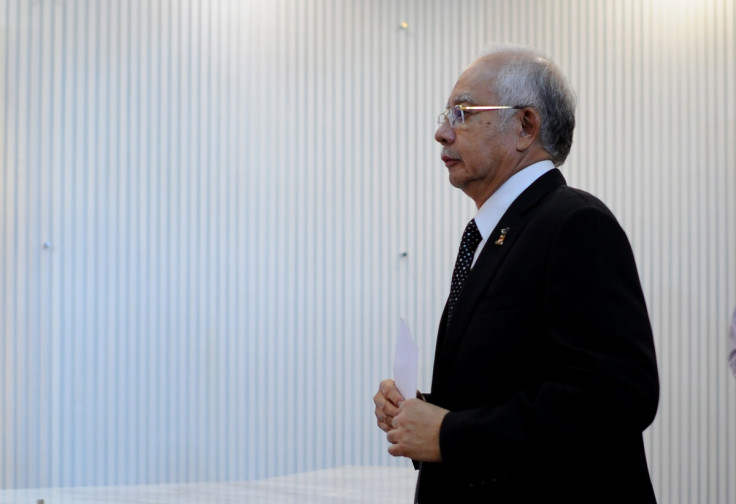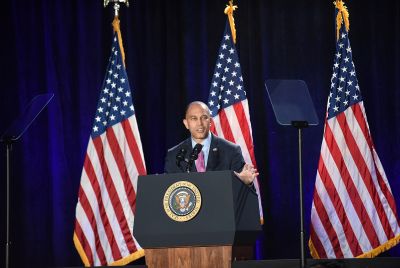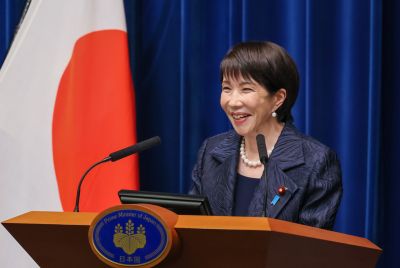Malaysia 1MDB scandal: Foreign investors take fright as walls close in on PM Najib Razak

The walls are closing in on Malaysian Prime Minister Najib Razak. As the embattled leader reels from the 1MDB scandal and revelations that $681m (£470m) was transferred into his bank account by Saudi Arabia, France announced on 4 February that prosecutors would investigate claims that he took kick-backs as part of a US$1.2bn (£0.8bn) arms deal. As his political rivals circle, Razak looks increasingly vulnerable.
Najib set up the 1Malaysia Development Bhd in 2009 to bolster Malaysia's coffers and turn the capital, Kuala Lumpur, into an economic hub but critics – including former Prime Minister Mahathir Mohammed – say that the fund lacks transparency and took on too much debt.
It is sad that investors shy away from Malaysia even when Ringgit is at the cheapest in nearly 20 years. Too many scandals have been exposed recently.
That argument was bolstered when in early 2015, it missed $11bn (£7.5bn) of payments it owed to banks and bondholders. When the Wall Street Journal disclosed that $618m (£426m) was transferred from the fund into Najib's personal bank account a scandal erupted, forcing the prime minister to claim that the money had been a donation from Saudi Arabia, which was confirmed after an investigation by Malaysia's anti-corruption commission.
1MDB has angrily denied that the money was transferred to Najib or that the fund is insolvent, while Najib has hit out at his political opponents, including Mahathir: "Let me be very clear: I have never taken funds for personal gain as alleged by my political opponents. At no point have those making these allegations offered any evidence [...].Not once has the source of these documents ever been shown," he wrote on Facebook.
But now the US authorities have waded into the debacle, with the Wall Street Journal reporting that the FBI was investigating allegations of money laundering at 1MDB and the New York Times revealing that a US Federal jury was looking into Najib. The fund has told the BBC that it was not aware of any US investigation into its actions.
It comes at a difficult time for Malaysia, both financially and politically. China's slowdown and low oil prices – Malaysia's main export is palm oil – has hit the country's economy while a new goods and services tax (GST) has been wildly unpopular. The political landscape has become increasingly undemocratic with Najib dismissing political opponents and at least one major opposition leader, Anwar Ibrahim, jailed on spurious charges of sodomy.
Now investment is tapering off as international firms shy away after the 1MDB scandal, despite the fact that the Malaysian currency – the ringgit – is at historic lows: "Before, it was easy to convince foreign investors and companies to invest and form joint ventures in Malaysia, but lately they prefer to avoid dealings with government-linked companies or institutions," said Abas al-Jalil, chief executive at Amanah Capital Group in Kuala Lumpur.
"It is sad that investors shy away from Malaysia even when Ringgit is at the cheapest in nearly 20 years. Too many scandals have been exposed recently."
The next national election in Malaysia isn't until 2018 but Najib will have his eye on local elections in just a couple of months. The first of these will be in the state of Sarawak, a largely autonomous state but one that supplied just enough seats to the prime minister's UMNO so that he could secure a majority in government. The controversy surrounding 1MDB could persuade voters to align with the opposition coalition, Alliance of Hope.
Dennis Ignatius, a career diplomat who was Malaysia's high commissioner to Canada between 2001 and 2008, told the Globe and Mail this week that the Malaysian public had had enough of Najib and the corruption that seems to stick to him like a bad smell.
"Malaysia is a nation in deep paralysis, a dysfunctional democracy, if it can still be called one. Allegations of massive corruption at the highest levels of government have caused a serious crisis of confidence in the government and in its ability to lead the country forward at a very challenging time," he said.
"The Attorney-General's decision to absolve the Prime Minister of any wrongdoing in connection with the alleged donation ... has not gone down well with a populace already weary and wary of the ability of our institutions to act professionally and with due diligence. There is widespread dismay, anger and disillusionment."
Malaysian 1MDB scandal: Check out our Flipboard magazine
© Copyright IBTimes 2025. All rights reserved.






















